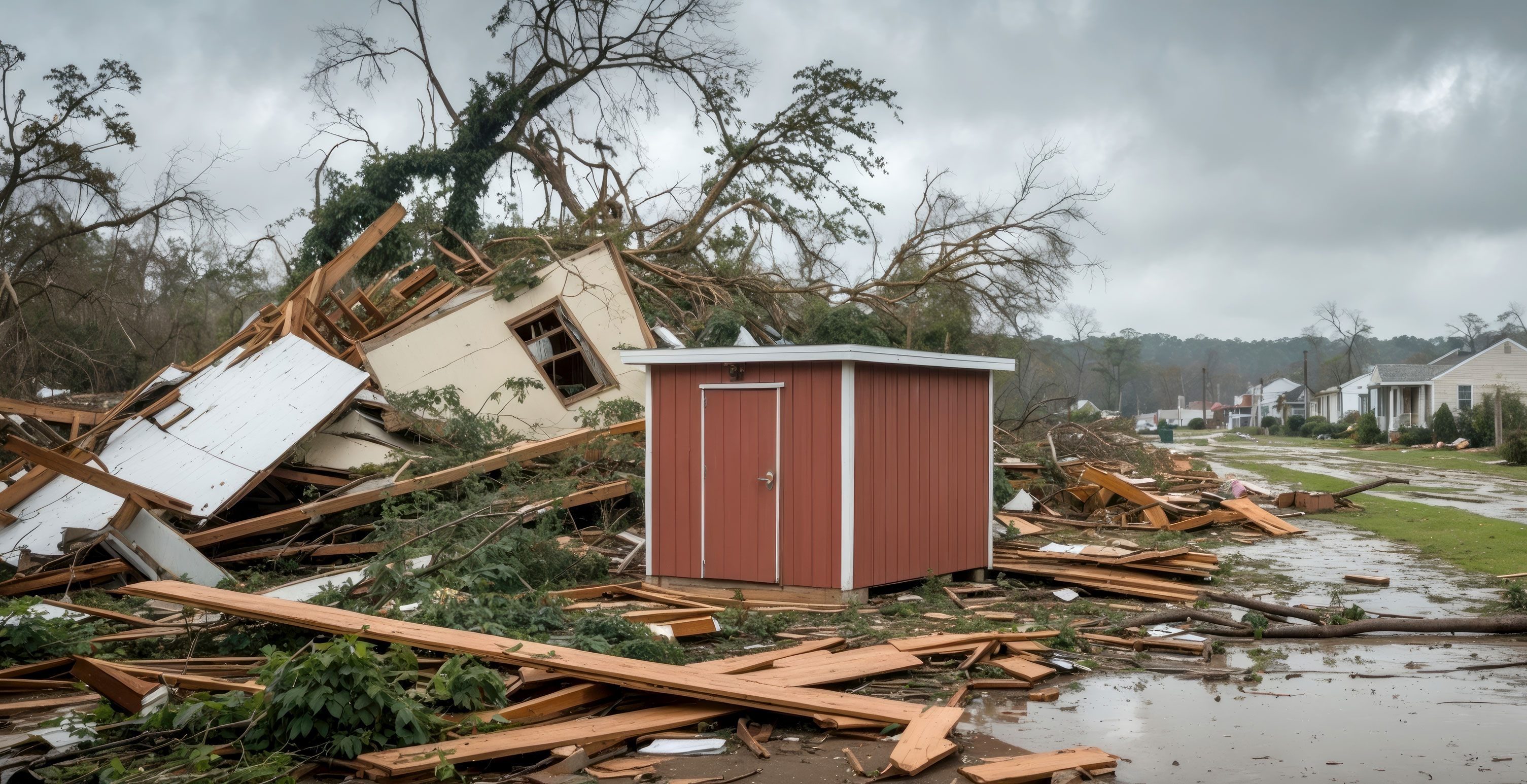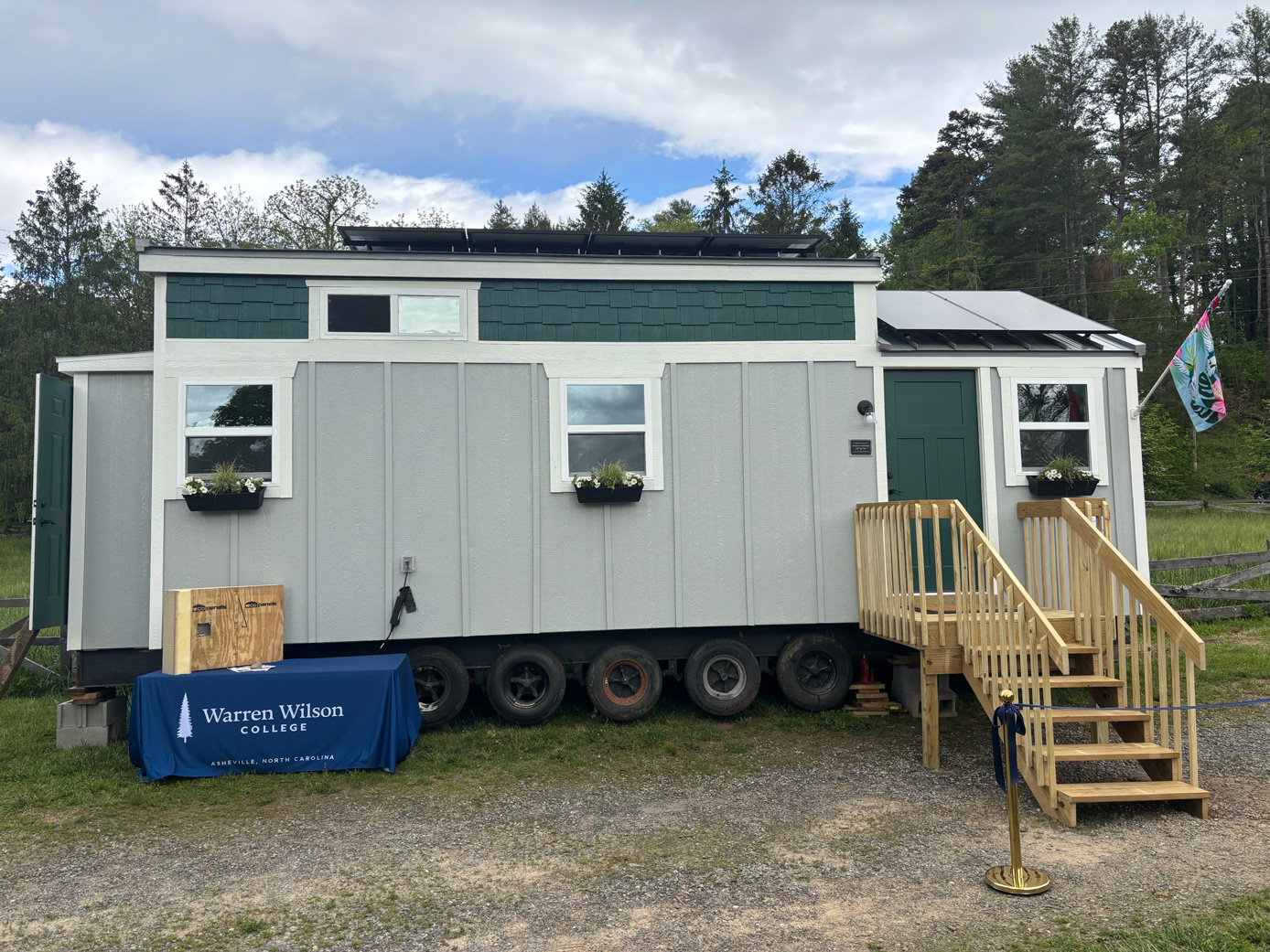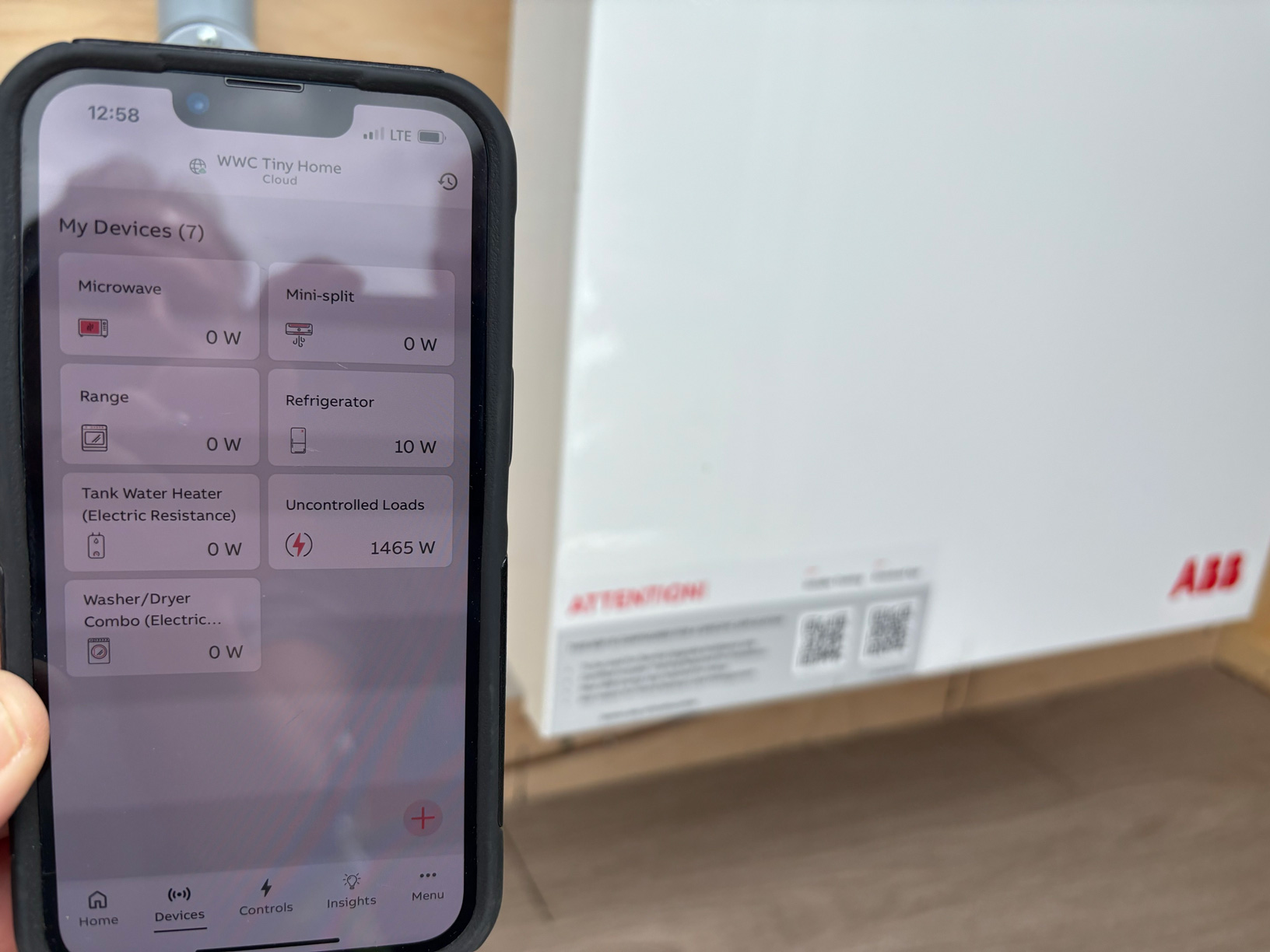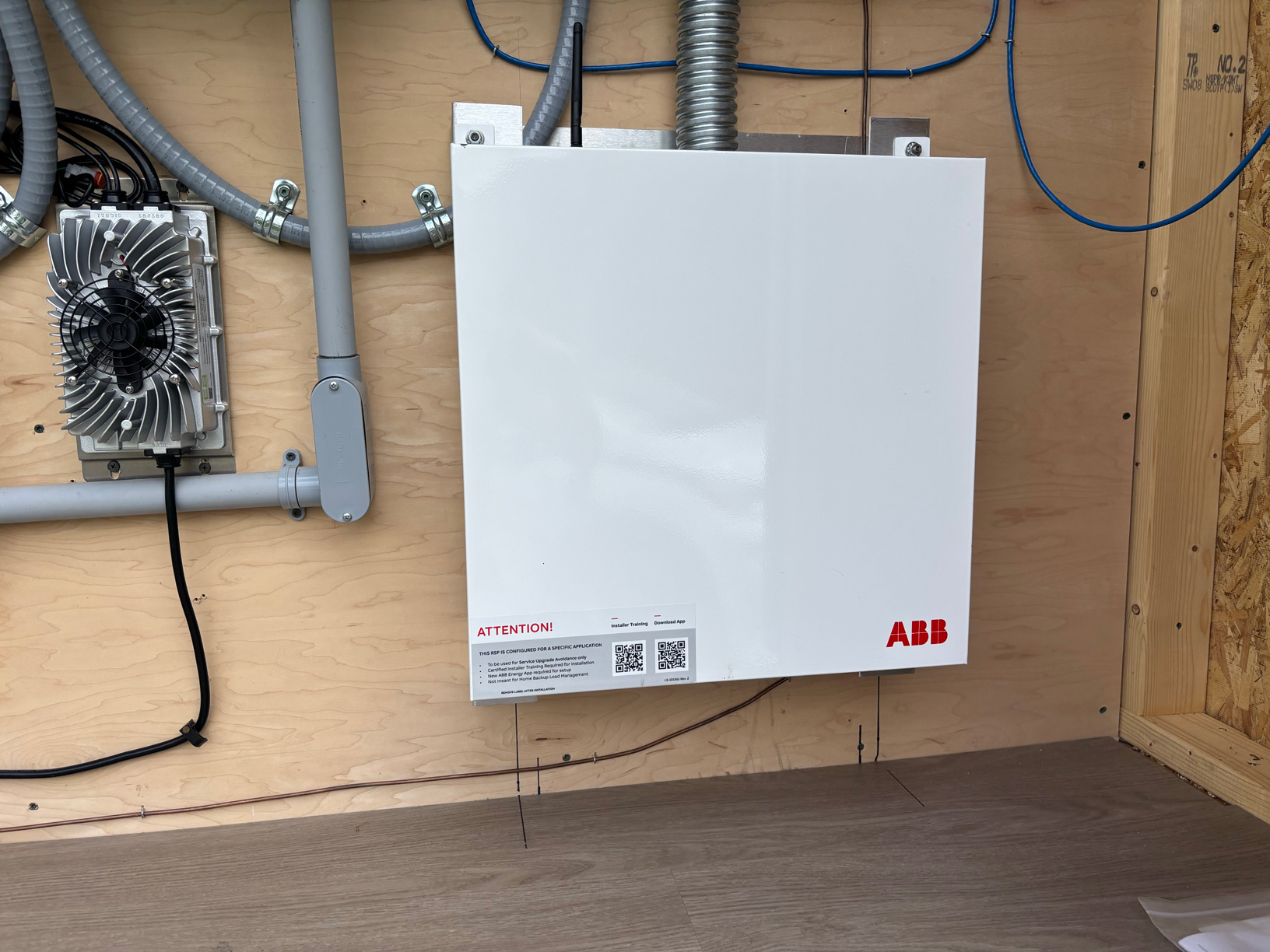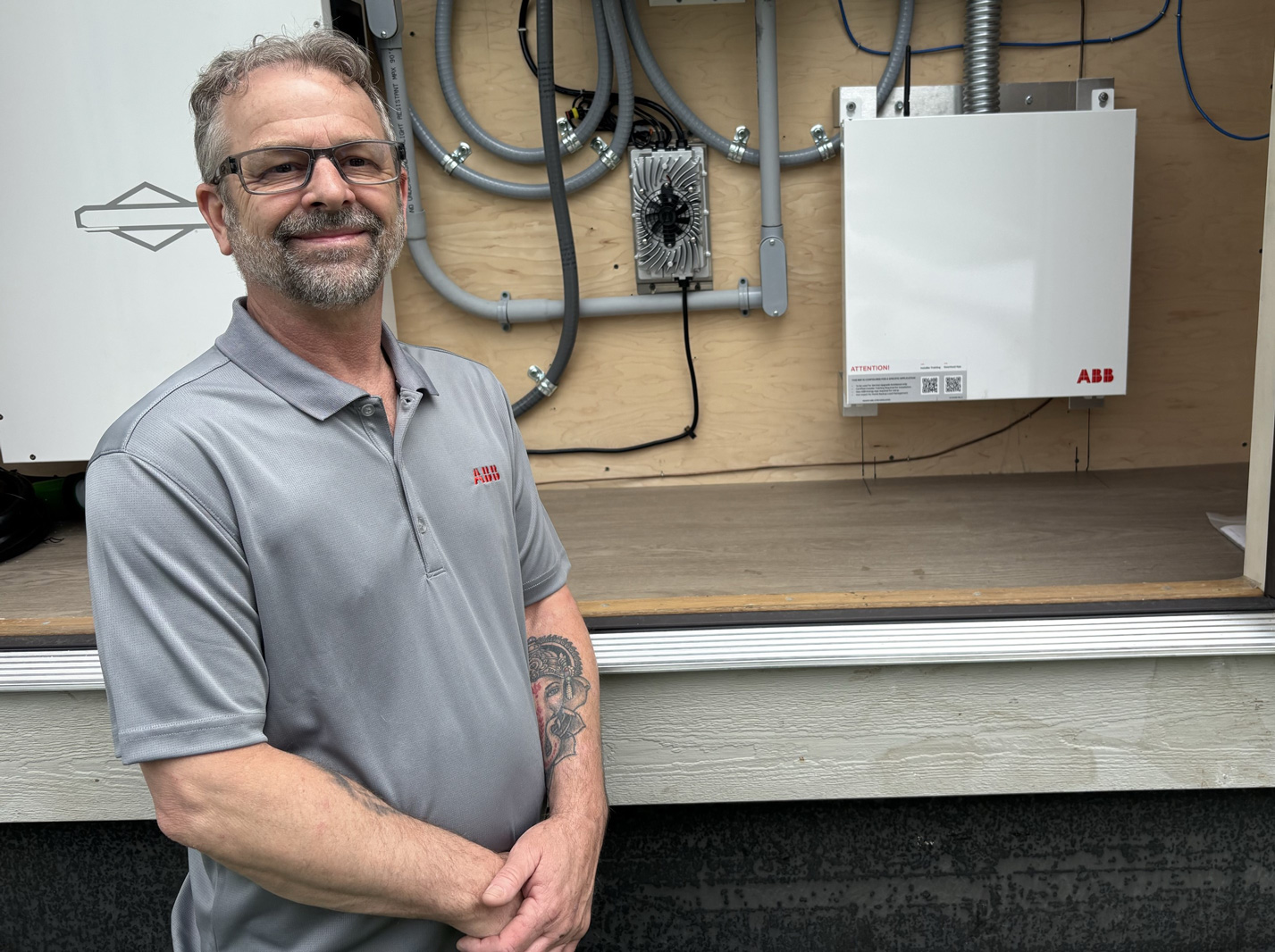- https://www.spglobal.com/commodity-insights/en/news-research/latest-news/electric-power/092724-hurricane-helene-causes-over-47-million-power-outages-across-southeast-us
- https://www.internal-displacement.org/global-report/grid2025/
- https://www.census.gov/data/tables/2024/demo/hhp/cycle06.html
- https://www.climate.gov/news-features/blogs/beyond-data/2023-historic-year-us-billion-dollar-weather-and-climate-disasters
- https://www.ncei.noaa.gov/access/billions/time-series
How ABB’s ReliaHome™ is Bringing Resilient Energy to Storm Survivors
A new off-grid tiny home in Asheville, North Carolina, is giving a family displaced by Hurricane Helene a fresh start – with ABB’s ReliaHome™ Smart Panel at its core. Inside the home, the technology will enable the family to efficiently manage their electricity, helping them maximize solar energy storage and expand capacity when needed.
The project, in partnership with Warren Wilson College, BeLoved Asheville, and multiple other organizations, highlights the growing importance of residential technology in today’s evolving electrification landscape—especially in building resilient, community-driven recovery efforts after natural disasters.
A response to Hurricane Helene
When Hurricane Helene struck in September 2024, nearly 4.7 million homes and businesses lost power1. In some areas, families waited weeks for electricity to return as crews struggled with catastrophic grid damage. And Helene was only one example: that same year millions of US residents had to relocate to another part of the country because of natural disasters2. Nearly 415,000 were still without stable housing six months later, and more than 425,000 never returned home at all3. Against that backdrop, projects like this solar-powered tiny home – part of a broader Tiny Home Movement – point to a faster, more reliable path to recovery.
Technology at the core
What makes this story different is the smart technology at its center. The home’s electricity will be managed and distributed by ABB’s award-winning ReliaHome™ Smart Panel, enabling the homeowner to monitor, control, and optimize energy use, all without a grid connection.
With the local housing crisis compounded by storm damage, the project team designed the home to operate completely off the grid, powered by high-efficiency solar panels and battery storage. The ability to generate, store, and manage energy intelligently will be critical once the family moves in.
“The ability for homeowners to not only monitor, but also control their energy use, is becoming more important every day. By prioritizing and controlling loads, families can keep essential power running longer during outages and make the most of their solar and storage. This technology gives them the resilience they need. We’re proud to support our neighbors in Western North Carolina as they rebuild after Hurricane Helene,” said Adam Mease, Business Line Leader, Energy Distribution NEMA, within ABB’s Smart Buildings Division.
Resilience for storm-prone regions
The Asheville project shows the potential of combining solar and storage in disaster recovery housing. By integrating renewable generation with ABB’s ReliaHome™ Smart Panel, homeowners can capture, store, and use solar power more efficiently, keeping lights on and appliances running even when the grid is down. This level of visibility and control is vital in storm-prone regions, ensuring stability and sustainability go hand in hand.
Beyond renewables and backup power, the ReliaHome™ Smart Panel also plays a central role in helping households make the broader shift to cleaner, all-electric living. With the ReliaHome™ Smart Panel, homeowners can move away from fossil-fuel systems and manage their energy use in real time.
For contractors, its modular design makes installation faster and less complicated, helping projects move forward even when skilled labor is in short supply. The Asheville project proves that lean energy adoption can be practical, affordable, and resilient, even in the most challenging conditions.
A bigger picture
With climate-related disasters causing at least $92.9 billion in damages in the US in 20234, and nearly $183 billion in 20245, the need for secure, affordable housing has never been greater.
This project demonstrates how ABB technology, paired with strong local partnerships, can help communities move beyond emergency relief to lasting equity, reliability, and climate resilience.
For more information on ABB residential products, visit Residential | ABB Electrification U.S.
